Court Administration
Court Administration, through the Trial Court Administrator, Kim Miller, provides professional staff support to judges, manages the Court's business needs, and provides essential court resources for the general public.

The core functions of Court Administration include:
- Planning and budgeting
- Prepare court budgets and guide those budgets through three local government review processes; purchase items essential to conduct business; acquire and oversee grants
- Personnel management and succession planning
- Recruit, hire, train, and mentor court employees; establish ethical standards and ensure impartial diversity practices; conduct performance appraisals
- Facility management and space planning
- Schedule courtrooms/hearing rooms and other physical spaces to ensure everyone has access and adequate room to work and circulate; partner with facility planners and architects to assess needs for court renovation, remodel or construction
- Technology management
- Seek opportunities to expand court services; provide electronic access to data, images, automated records management; assess emerging technologies for video and telecommunications, multimedia tools for education, training and information delivery; oversee courtroom technology and evidence presentation during court proceedings; implement computer-assisted systems that can improve court performance
- Information management
- Provide electronic access to court information for attorneys, litigants, governmental agencies, and the public
- Community relations and public information
- Serve as a point of contact for the release of information to the media and the public; collect and publish data on completed judicial business and the court system; facilitate or develop community outreach programs
- Security management
- Maintain practical standards for a secure court facility while working collaboratively with community stakeholders and criminal justice system partners
- Intergovernmental liaison
- Interact with other government agencies to promote collaboration while maintaining the integrity of the court as a separate but equal branch of government
- Emergency preparedness and business continuity
- Ensure that leadership and governance, as well as processes and protocols are in place to prevent or prepare for, respond to and recover from any threat, emergency or disaster, to ensure critical court operations can occur
- Keeping the record
- Ensure that the record of court actions, proceedings and outcomes, whether through official court reporters or digital court recording, are maintained, secured and accessible
- Performance management and accountability
- Review reports and statistics to measure court system performance, ensure timely case dispositions and balance efficient, cost-effective operations with service demands and the fair administration of justice
MEET THE TEAM
Court Guardianship Monitoring Program
Twelfth Judicial Circuit Court Guardianship Monitors serve as the eyes, ears of the court
 DANA YAWN, Sarasota County
DANA YAWN, Sarasota County
The Court Guardianship Monitoring Program was established to ensure that all court-appointed guardians adhere to the State of Florida Guardianship laws by meeting filing deadlines and providing the most appropriate level of personal and/or financial care to their wards.
The primary objectives of the court guardianship monitor position are:
- to independently review and investigate Guardianship cases to make sure the best interests of the ward are being met;
- to advise the Court on a regular basis the status of active Guardianship cases;
- to be a clearinghouse for complaints, requests, and inquiries regarding particular Guardianship cases; and
- to attend all incapacity/guardianship hearings.
INVESTIGATIONS OF GUARDIANSHIP CASES
Any of the following can initiate an investigation of a Guardianship case:
- Complaint by an outside party (family members, friends, neighbors, community stakeholders, etc.)
- Clerk’s Office inquiry
- Letter or anonymous complaint
- Court inquiry
- Recommendation by the guardianship monitor
If the Court believes a more detailed inquiry is needed, including further review of the ward’s financial, medical, or residential information, the Court will appoint the court guardianship monitor. The court guardianship monitor will then conduct an inclusive investigation and submit to the Court its results by filing a detailed report. Since the program’s inception, the Court has appointed Dana and Carmen to probe more than 500 cases. Last year alone, the team submitted nearly 175 reports to the Court.
FIELD VISITS
Prior to the pandemic, Dana and Carmen spent most of their work days conducting random and unannounced visits at facilities, day programs, hospitals, homes, group homes, or any other place that the ward may spend time. Currently, the team conducts a majority of their field visits via Zoom, FaceTime and Skype.
 CARMEN RUIZ, Manatee County
CARMEN RUIZ, Manatee County
The purpose of the visit is:
- to visually inspect the ward for signs of abuse or neglect;
- to evaluate the ward’s mental status;
- to inventory personal items;
- to review medical records; and
- to visually evaluate the staff and environment.
GUARDIANSHIP MONITORING HOTLINE
As part of Court Guardianship Monitoring Program, the team diligently responds to phone calls and emails from the public. Anyone can report their concerns regarding Manatee or Sarasota County Guardianship cases. Staff will immediately document phone calls and emails and submit them to the Court.
COMMUNITY INVOLVEMENT
On December 15, 2020, the court guardianship monitors represented the 12th Judicial Circuit on a panel discussion of guardianship matters hosted by the members of The Thomas E. Penick, Jr. American Inn of Court.
Magistrates & Hearing Officers
The most important resource a court has is hearing time with a judge. However, the judge is only one person in a division that has hundreds of cases. How does a court keep cases moving efficiently through the legal system when hearing time with the judge is limited? They do it with the help of magistrates and hearing officers. These quasi-judicial officers provide faster access to the court for family and civil disputes.
A quasi-what?
All magistrates and hearing officers are quasi-judicial officers. They may wear the familiar black robe during court proceedings, but they are not elected or appointed to their positions. Instead, they are at-will court employees assigned to support judges in certain divisions.
Litigants must agree to have a hearing with a magistrate, and once the hearing has concluded, the magistrate submits recommendations to the division judge who reviews then signs the recommended order. Litigants have 10 days to enter objections to the recommendations of the magistrate. If a litigant enters an objection, the division judge may have a hearing before issuing the final order.
Here in the Twelfth Judicial Circuit, magistrates and hearing officers support judges in the family division, probate/guardianship division and civil division.
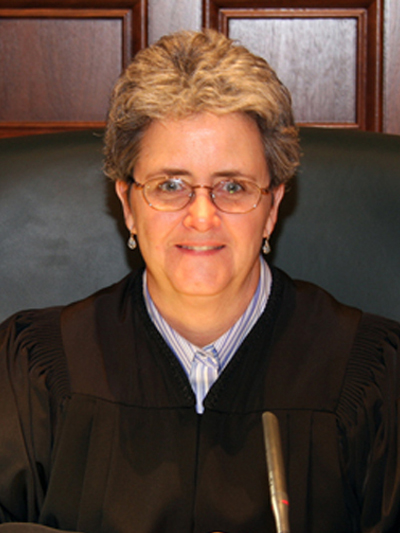 Magistrate Deborah Bailey
Magistrate Deborah Bailey
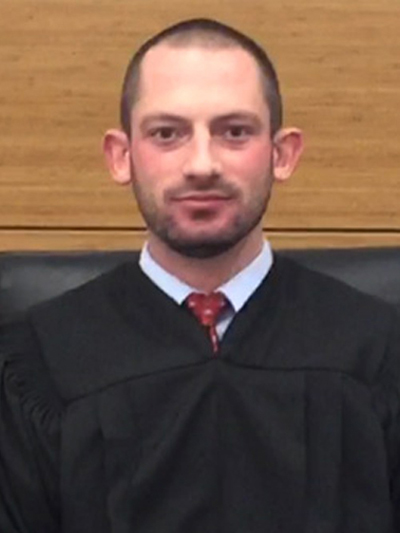 Magistrate David Caskey
Magistrate David Caskey
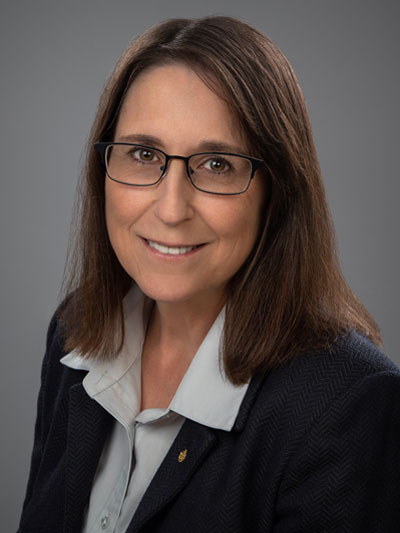 Magistrate Mary Ann Floyd
Magistrate Mary Ann Floyd
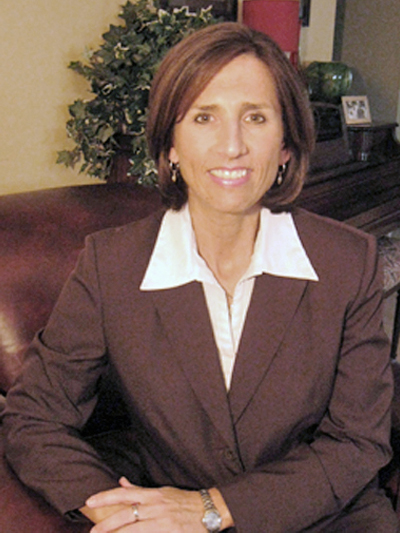 Magistrate Laura Hale
Magistrate Laura Hale
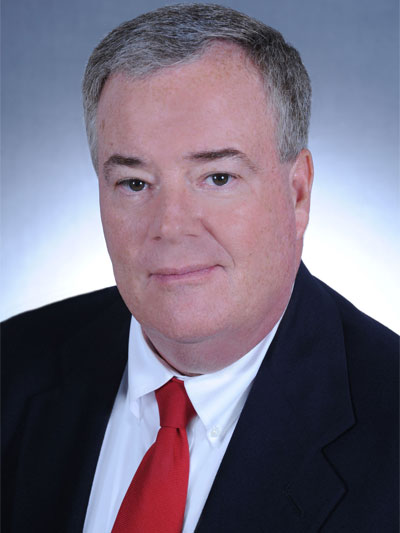 Magistrate Paul Hudson
Magistrate Paul Hudson
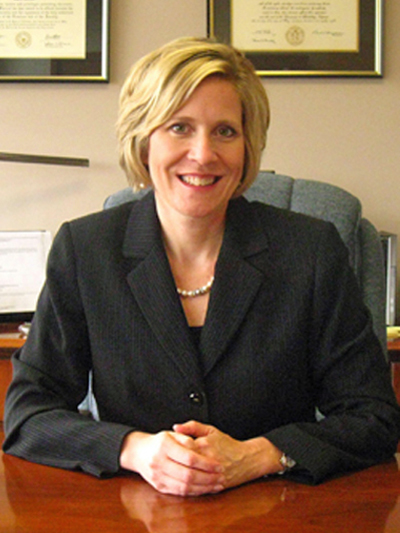 Magistrate Rebecca Hunt
Magistrate Rebecca Hunt
 Magistrate Mary McEwen
Magistrate Mary McEwen
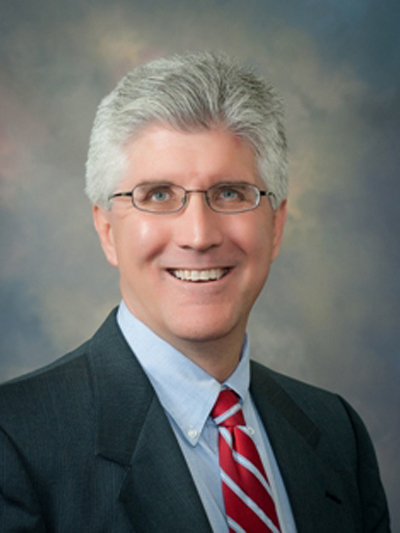 Magistrate Edward Wilson
Magistrate Edward Wilson
“The terminology used (magistrate or hearing officer) has to do with the applicable statutory scheme,” said Ed Wilson, a part-time magistrate in Sarasota County assigned to preside over Marchman and Baker Act hearings.
“The statutes governing Marchman and Baker Act hearings include authority for the court to appoint magistrates to hear those cases. The statute governing the Child Support Enforcement program uses the ‘hearing officer’ terminology. Also, the rules of civil procedure authorize the court to refer certain matters to a magistrate,” Wilson said.
The circuit has five full time magistrates that assist the family divisions in DeSoto, Manatee and Sarasota counties, hearing cases that include (but are not limited to) paternity, child custody, child support enforcement and divorce. One magistrate assists the Sarasota County civil division. In both Manatee and Sarasota, court counsel staff who are sworn in as general magistrates, also take turns handling the weekly Baker and Marchman Act hearings.
Judicial Assistants
On paper, they provide administrative, secretarial and clerical support to the judges. In reality, they are the force that keeps their bosses on time and organized; their daily interactions with attorneys, court staff, litigants and the public are instrumental in the Court’s ability to provide justice. They are the judicial assistants of the Twelfth Judicial Circuit.
In honor of Administrative Professionals’ Day on April 21, we are shining the spotlight on our judicial assistants for the month of April. Judicial assistants (JAs), support judges by maintaining their professional calendar, scheduling and coordinating hearings, motions and conferences, screening callers and drafting documents. They help their judges with trial scheduling and maintaining trial dockets.
Because judges are prohibited from engaging in communication with one party to a case outside of the presence of the other party or parties, JAs serve as the public face of the judge, communicating with litigants, attorneys and the public on behalf of their judge.
A JA’s daily tasks may be the same, but no two days are the same. When you’re in the business of doing the people’s work, things can get complicated. The job requires initiative, ingenuity, creativity, analysis and a healthy dose of patience.
There are 32 JAs in the Twelfth Circuit. They all also happen to be women. Their educational levels vary: we have several JAs that have undergraduate degrees and a few that have graduate degrees. All of them have a background in the legal field, having worked previously as a JA in another jurisdiction, a court clerk, in court administration, or in a law firm as a legal assistant or paralegal.
MEET THE TEAM
Combined, the judicial assistants of the Twelfth Judicial Circuit have provided 358 years of dedicated public service to the court and their fellow citizens. More than half of them have served their communities in this unique capacity for a decade or longer!
-
 Donna - 37 yrs (Smith)
Donna - 37 yrs (Smith)
-
 Darlene - 31 yrs (Uzabel)
Darlene - 31 yrs (Uzabel)
-
 Nancy - 31 yrs (Arend)
Nancy - 31 yrs (Arend)
-
 Debbie - 27 yrs (Doyle)
Debbie - 27 yrs (Doyle)
-
 Karen - 27 yrs (Mercurio)
Karen - 27 yrs (Mercurio)
-
 Kelly - 21 yrs (Whyte)
Kelly - 21 yrs (Whyte)
-
 Shannon - 16 yrs (Galen)
Shannon - 16 yrs (Galen)
-
 Ruth - 15 yrs (Sniffen)
Ruth - 15 yrs (Sniffen)
-
 Joanne - 14 yrs (Curley)
Joanne - 14 yrs (Curley)
-
 Lisa - 13 yrs (Williams)
Lisa - 13 yrs (Williams)
-
 Petrina - 13 yrs (Steele)
Petrina - 13 yrs (Steele)
-
 Anita - 12 yrs (Hall)
Anita - 12 yrs (Hall)
-
 Laurie - 12 yrs (Inman)
Laurie - 12 yrs (Inman)
-
 Anita - 11 yrs (Roberts)
Anita - 11 yrs (Roberts)
-
 Jennifer - 11 yrs (Krug)
Jennifer - 11 yrs (Krug)
-
 Laurie - 10 yrs (Riva)
Laurie - 10 yrs (Riva)
-
 Marianne - 10 yrs (Nicholas)
Marianne - 10 yrs (Nicholas)
-
 Carla - 8 yrs (Bruning)
Carla - 8 yrs (Bruning)
-
 Marilu - 8 yrs (Bonner)
Marilu - 8 yrs (Bonner)
-
 Lori - 6 yrs (Padar)
Lori - 6 yrs (Padar)
-
 Tess - 6 yrs (Maulucci)
Tess - 6 yrs (Maulucci)
-
 Tasha - 5 yrs (Dees)
Tasha - 5 yrs (Dees)
-
 Jackie - 4 yrs (Denkin)
Jackie - 4 yrs (Denkin)
-
 Magan - 4 yrs (Brewer)
Magan - 4 yrs (Brewer)
-
 Lana - 3 yrs (Quartermaine)
Lana - 3 yrs (Quartermaine)
-
 Stephannie - 3 yrs (McHugh)
Stephannie - 3 yrs (McHugh)
-
 Kaitlyn - 2 yrs (Ruhl)
Kaitlyn - 2 yrs (Ruhl)
-
 Cheryl - 1 yr (Walker)
Cheryl - 1 yr (Walker)
-
 Lori - 1 yr (Gould)
Lori - 1 yr (Gould)
-
 Olivia - 1 yr (Carroll)
Olivia - 1 yr (Carroll)
-
 Karina - <1 yr (Moss)
Karina - <1 yr (Moss)
-
 Vicki - <1 yr (Moreland)
Vicki - <1 yr (Moreland)
Haworth Law Library
Every day in the Judge Lee E. Haworth Self-Help Center/Law Library is unique and completely unexpected. Prior to the pandemic, in January 2020, library staff saw 178 appointments; 117 of these appointments were first-time visitors and of these first-time visitors, 53 appointments were patrons exclusively using law library services.
Full-time librarian Bailey Smith is available to assist patrons with legal research and self-help services. Part-time receptionist Sierra White assists in booking appointments, answering questions and helping patrons get started with legal research.
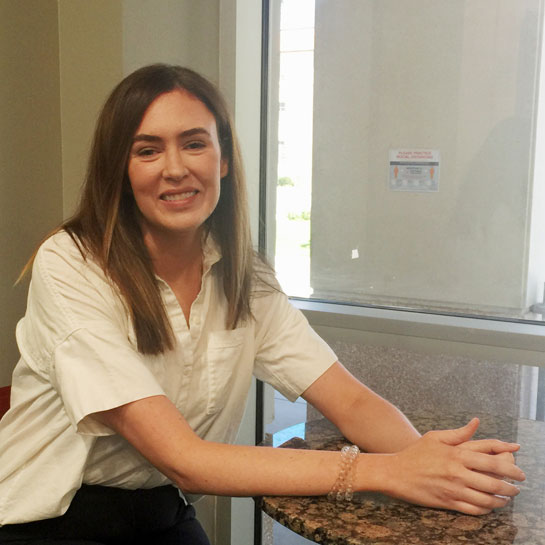 Bailey Smith
Bailey Smith
Law library staff has helped research questions on the laws of other states, election laws, school board termination proceedings, and issues before the Florida Supreme Court and the U.S. Supreme Court, and helped patrons identify if their query falls under municipal, county, state or federal jurisdiction.
‘DESIRABLE, PUBLIC NEED’
The Florida Legislature established the Sarasota County Law Library in 1959, declaring it a desirable, public need. Between the early 1960s until 1999 the law library was housed in the historic courthouse. In the early 2000s the library briefly moved to Selby Library. Between 2003-2018 the law library resided on Adams Lane before moving to its current space in the first floor lobby of the Silvertooth Judicial Center where it was combined with the Self-Help Center.
In 2018, the Self-Help Center/Law Library was renamed after retired Circuit Judge Lee E. Haworth for his lifelong efforts to make the courts and its programs more accessible to the public, especially for self-represented litigants.
A little known fact about the law library is that it is governed by a Board of Trustees (see Administrative Order 2019-15.2), composed of a circuit judge, who serves as the board’s chair, and four practicing attorneys. The board approves the law library’s budget, any capital item expenditures and important decisions that affect the library. Circuit Judge Charles Williams chairs the board, along with attorneys E. Keith Dubose, Erin Itts, Charlie Ann Syprett and F. Scott Westheimer. As law librarian, Bailey Smith reports to the board.
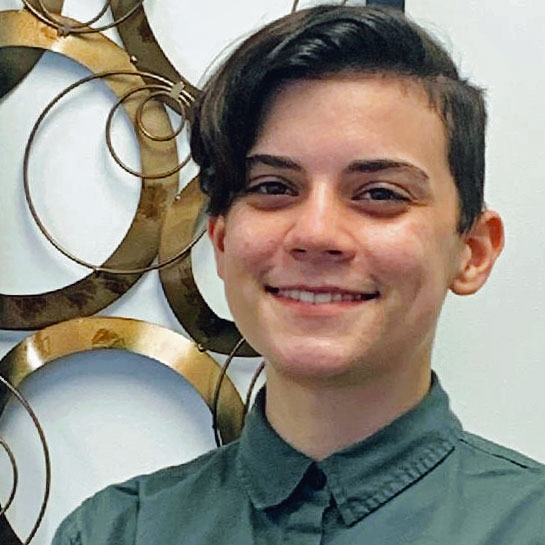 Sierra White
Sierra White
WHERE ARE THE BOOKS?
You may imagine the law library filled with legal books and treatises with few electronic/online materials. However, the law library converted to a largely electronic/online collection and downsized its collection of books and treatises.
Law librarian Bailey Smith said she believes the conversion was a good thing. “The law is constantly changing, faster than books can go to a publisher. We at the law library understand that many members of the public come in expecting to look at hardbound volumes, but the most up-to-date information is actually available electronically, and we are happy to help them access that material” Smith said.
RESOURCES AND SERVICES
The law library is open to anyone who wishes to conduct legal research. As long as the issue is related to the law, patrons may access the computers or law library services.
Staff provides basic instructions of how to conduct legal research. For those that need more help, instructional videos are available. Staff are not licensed to practice law so they are unable to answer legal questions.
There are three public-access computer terminals for legal research, with access to newly released Florida circuit and county court opinions and a collection of state and federal resources.
Patrons have online access to Florida Law Weekly and Fastcase, a comprehensive, nationwide law library that allows the user to search local and federal case law, statutes, regulations, court rules, constitutions and law review articles.
Additional resources include:
- rules of court both state and federal jurisdictions
- rules of procedure for each court division
- photocopier
- free printer
- notary public
Services specific to bar members are lending Continuing Legal Education (CLE) CDs, working with various chapters of the Sarasota County Bar Association or Florida Bar Association on projects.
[ LEARN MORE ]
For more information, to learn about the research options or services available, or to schedule an appointment visit the Judge Lee E. Haworth Self Help Center and Law Library webpage.
Problem Solving Courts
The Twelfth Judicial Circuit is a leader in the state in providing “therapeutic justice,” creating and implementing eight problem-solving courts:
- Case Management Court
- Community Care Court
- Drug Court
- DUI Court
- Mental Health Court
- Manatee Treatment Courts
- Turn Your Life Around (TYLA) Court
- Veterans Treatment Court
Problem-solving courts are an attempt by those in the “trenches” of the criminal justice system – the trial courts – to change the culture from within. The philosophy of the problem-solving courts is to identify certain types of cases and defendants that may be appropriate for treatment rather than traditional punitive sanctions. This is done by offering defendants, as part of the disposition of their case, treatment and support while also holding them accountable for their actions.
These specialty courts use multidisciplinary teams and case management to address the root causes of people becoming involved in the criminal justice system: diseases of addiction, mental illness and co-occurring disorders, combining treatment and rehabilitation with judicial supervision.
Twelfth Judicial Circuit problem-solving courts have proven effective in rehabilitating their participants evidenced by reduced recidivism, earlier fulfillment of restitution obligations, and increased satisfaction with the court process.
No other criminal justice program has been able to reduce recidivism and increase public safety and satisfaction with the court system more than problem-solving courts.
Problem-Solving Court Judges
In January 2021, pursuant to Administrative Order 2020-19.3 the Circuit launched Problem-Solving Court and Criminal Administrative Division “P”, which merged all treatment/specialty courts into one new super division.
Chief Judge-elect Charles E. Roberts is the administrative judge assigned to oversee Division P; he also presides over:
- Drug Court and Veterans Court in Sarasota County
- Mental Health Court (which encompasses Health Care Court, Misdemeanor Comprehensive Treatment Court, and Felony Comprehensive Treatment Court) in Sarasota County
- Treatment Courts in Manatee County (which encompasses Drug Court, Health Care – Manatee, and Veterans Treatment Court)
DeSoto County Judge Danielle Brewer presides over Case Management Court in Arcadia. Sarasota County Judge David Denkin presides over Community Care Court and DUI Court in Sarasota County. Circuit Judge Andrea McHugh presides over TYLA Court in Sarasota County and Circuit Judge Susan Maulucci presides over TYLA Court in Manatee County.
[ LEARN MORE ]
Find summaries and links to all our specialty courts on the Court’s Problem-Solving Courts webpage.
DeSoto County Case Management Services
Recently, the Twelfth Judicial Circuit Court entered a Memorandum of Understanding with the DeSoto County Board of County Commissioners, creating a new department for the Circuit – DeSoto County Case Management Services. The mission of this department is to provide public safety and reduce recidivism.
The department is comprised of two distinct programs: Probation and the DeSoto County Case Management Court. We are also excited to add a third program this year, Supervised Pre-Trial Release and Services.
The mission of Probation is to support the criminal justice system by supervising local probationers and enforcing court ordered conditions of probation. Probation allows the Court to utilize sentencing alternatives to reduce the jail population (i.e., the work program, pretrial intervention (PTI), community service, substance abuse counseling, and the Driver Enhanced Treatment Education Rehabilitation program (DETER)). The Probation program of the Case Management Services Department also ensures the collection of court ordered fines/fees and restitution.
Some of the responsibilities and daily operations of the Probation program staff include:
- conducting intakes for new probationers.
- supervising and enforcing all court sanctions.
- reviewing new arrests of those currently on probation.
- maintaining and supervising the work program and community service.
- communicating with the Court, State Attorney’s Office, Public Defender’s Office, private defense attorneys, and local law enforcement to streamline operations and improve the court system.
- collaborating with local agencies to provide services to aid probationers in compliance with court orders.
Probation currently supervises approximately 100 probationers.
A typical day for a county probation officer is fluid. No two days are alike. You will naturally find officers answering phones, speaking to clients about the conditions of supervision, verifying information received by clients, attending court hearings, submitting reports to the Court (for compliance and noncompliance), and referring clients to treatment providers (i.e., anger management, batterer’s intervention, victim impact panel, substance abuse evaluation and treatment, etc.).
DeSoto’s Comprehensive Case Management Court, in partnership with Centerstone of Florida, includes principles and treatment methods associated with our state’s existing Veterans, Drug, DUI, and Mental Health Treatment Courts to provide treatment to those that would most benefit, while also conserving and most efficiently utilizing the Court’s limited resources by placing these Courts under one umbrella. Statewide, Problem Solving Courts have been proven to reduce the reoccurrence of recidivism, which allows participants a chance to improve their life, while also saving taxpayer dollars, and decreasing the strain on local jails.
DeSoto’s Comprehensive Case Management Court serves participants struggling with addiction, serious mental illness, and/or co-occurring disorders. We aim to serve a total of 30 participants, that would be ideal candidates for the various Veterans, Drug, DUI, and Mental Health Courts found in larger communities.
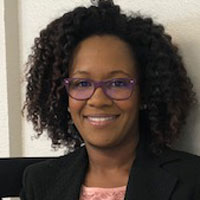 Ashley Brown
Ashley Brown
The Court promotes sobriety, recovery, stability, and accountability for all its participants through a coordinated response that involves cooperation and collaboration with the traditional partners found in Problem Solving Courts statewide. Preference for admission is given to veterans, who, in addition to the coordinated response mentioned above, are also served in collaboration with the United States Department of Veterans Affairs (“VA”), volunteer veteran mentors, and Veterans and Veterans’ family support organizations.
DeSoto’s Comprehensive Case Management Court includes a specialized clinician responsible for screening, assessing, and providing counseling services and a case manager responsible for assessing non-clinical needs and providing wrap-around referrals and services.
 Kenny Farley
Kenny Farley
Our department includes dedicated, hardworking staff who have been instrumental in keeping the department running in an efficient manner during the recent transition. The department consists of: Director Ashley Brown, Probation Supervisor and Work Program/Community Service Coordinator Kenny Farley, and Office Manager/Criminal Justice Info Tech Raquel Orta. Rounding out the team is Case Management Court Counselor Amber Jensen (Centerstone). We are seeking to fill the position of the Case Management Court case manager.
With the inclusion of Supervised Pre-Trial Release and Services within the next year, the Case Management Services Department will be able provide a seamless process for the screening and supervision of both felony and misdemeanor defendants while cases progress to trial or disposition. Further, Pre-Trial Services screening will allow the Case Management Court to identify potential clients more efficiently and provide these results to the State Attorney’s Office for review.
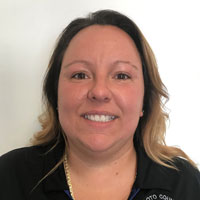 Raquel Ortz
Raquel Ortz
Upon sentencing of misdemeanor cases involving probation, the Probation program will continue working with misdemeanor defendants to encourage successful completion of probation conditions. Additionally, the Probation program will continue to provide pre-trial intervention programs to certain defendants as well as offer the Work Program as a sentencing alternative to jail for both felony and misdemeanor cases.
Overall, we are incredibly thankful for our community partnerships that have allowed this Department to form. It will be an incredible asset to the DeSoto County community and to the Twelfth Judicial Circuit Court.
Juvenile Assessment Center
After a juvenile is arrested in Sarasota County, law enforcement officers immediately transport the youth(s) to a facility housed within the Sarasota County Jail that is staffed 24 hours a day, seven days a week by a team of dedicated and highly trained county employees. This facility is called the Juvenile Assessment Center (JAC).
In 2013, Sarasota County Pretrial Services (PTS) was given the responsibility of overseeing the county's JAC. The JAC is a facility within jail’s booking (screening) unit. Every person under the age of 18 accused of committing a criminal offense in Sarasota County is screened by the JAC. The JAC has screened youth as young as age 10.
The team consists of four PTS case workers that are full-time, designated JAC Screeners and a Compliance Coordinator that oversees operations. PTS also has several Intake Case Workers that maintain their JAC certification and are available for backup JAC staff as needed.
Each JAC Screener is responsible for completing 124 hours of in-person and online pre-service training mandated by the Department of Juvenile Justice (DJJ) within six months of their initial hire date to obtain certification. An additional 40 hours of yearly in-service training is required to maintain that certification. It should be noted that JAC training is in addition to the required PTS case worker training.
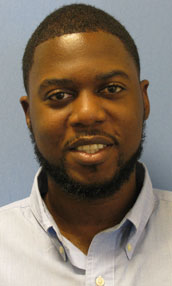 Larry Kitt
Larry Kitt
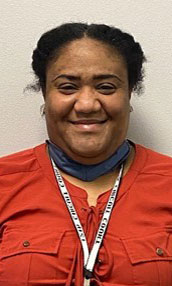 Stephanie Abrams
Stephanie Abrams
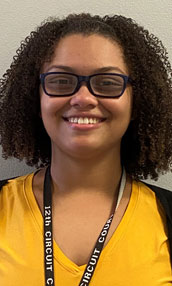 Sabrina Harris
Sabrina Harris
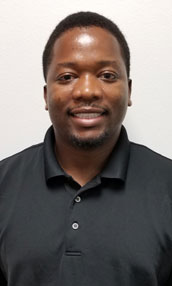 Maxime Poitevien
Maxime Poitevien
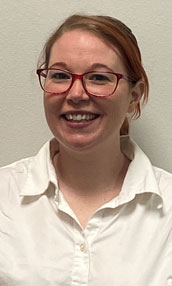 Stephanie Smith
Stephanie Smith
JAC Screeners ensure that youth entering the facility are physically and mentally fit to complete the screening process. Prior to entrance, every individual is subject to a medical and mental health clearance. This initial clearance helps ensure that the youth is free from major physical ailment and or suicidal ideation before entering the facility. Any youth who does not pass this clearance is immediately sent to a local medical center or mental health provider to receive assessment and needed treatment before returning to the facility to complete the screening process.
A screener's next priority is vetting the youth to determine, based on DJJ policy and state statute, how to release the youth from custody. Release types include a release to a parent or responsible adult, a release to one of three levels of Supervised Release (Home Detention), or a release to the regional juvenile detention center. The average juvenile screening takes three to four hours, and DJJ mandates that the JAC Screener make every attempt within reason to release youth from the facility with six hours.
In 2020 the JAC screened 293 juveniles and in 2019, the JAC screened 398 juveniles. Once the screening is complete, staff send all relevant documentation to court stakeholders to begin criminal proceedings.
Other responsibilities:
- Human Trafficking Assessment
- Mental health screening
- Victim Interviews
- Court Liaison
To learn more about the Juvenile Assessment Center, please visit the Pretrial Services page on the court’s website.
Court Administration Technology Services
September 21 is #ITProfessional Day so it seemed appropriate that we shine the September’s Department Spotlight on the Court Administration Technology Services (CATS) team.
The CATS team is responsible for all technology related systems and services that support the Twelfth Judicial Circuit Court. The department, along with county and clerk technology partners in Manatee, Sarasota, and DeSoto counties, provides technical support for computers, multi-media equipment used in courtrooms, audio-visual equipment, servers, video-conferencing, Zoom kiosks, informational lobby displays, telephones, hearing impaired devices, Internet and Intranet websites, printers, fax machines, copiers, and all other related technology to include the monitoring, support, maintenance and upgrading of local area network, virtualization, mobile devices, applications, email, wireless networks and security.
The CATS team routinely performs work in researching, evaluating, implementing, and maintaining the various software and hardware systems at the user level. In addition to implementing and supporting off-the-shelf applications such as Microsoft Office 365, Zoom, DocuSign, aiSmartBench, etc., the department also develops and maintains in-house designed applications and modules such as eWarrants and numerous web applications to support the requirements of the organization and other divisions.
Even more importantly, the CATS staff supports and maintains existing systems and ensures proper backups and technology plans are in place to implement continuity of operations when an interruption of service occurs. They conduct thorough research and analysis of business processes and make recommendations of appropriate technological solutions.
It goes without saying the past 18 months has certainly been challenging for everyone. The technology staff here at the Twelfth Circuit have risen to the occasion ensuring court operations could continue and employees who could work remotely were able to do so. The CATS staff had to quickly think outside of the box, adapt, and overcome the technical and logistical challenges for remote hearings and remote work.
Some of the highlights are:
- Purchase, configuration, and deployment of more than 140 data-encrypted laptops
- Acquisition and administration more than 100 Zoom licenses
- Purchase and distribution of 100 webcams, numerous printers, and VPN accounts
- Development and implementation of the Zoom Dialer to allow judges from any location to connect to any of our circuit jail hearing rooms
- Creation of Zoom kiosks allowing the public without technology to attend Zoom hearings
- Procurement and implementation of tools to allow software to be installed remotely
- Website changes where Zoom meetings are stored
- Development of a hybrid courtroom infrastructure and hardware plan
- Continual changes to COVID information on the website
- Updating judges’ Zoom requirements, instructions, and notices for Zoom
- Development of the offsite equipment request form
The Florida Courts Technology Commission recognized the efforts of judicial branch IT staff during the pandemic with a proclamation at the FCTC’s August meeting. Photos of Florida’s State Courts System IT staff, including the Twelfth Circuit CATS team, were featured in a video presentation featuring messages from Florida Supreme Court Chief Justice Charles Canady, FCTC Chair Judge Lisa Munyon, and Angel Colonesso, Manatee County Clerk of Court and president of the Florida Court Clerks & Comptrollers.
“It is not exaggeration to say that technology and the swift implementation by information technology staff in every jurisdiction allowed our courts to continue to serve people throughout this pandemic,” Chief Justice Canady said. “It is amazing to know we have conducted more than 375,000 Zoom meetings with more than 5 million participants since March 2000.”
The CATS team takes the “whatever it takes” attitude to heart. They strive to meet the daily expectations of judges, court staff, and external customers, ensuring the technology used is working properly and efficiently. In addition to the accomplishments made in response to working in the pandemic-era, migrating our email off legacy servers, upgrading desktops to Office 365, network and server infrastructure upgrades, and security awareness training have been significant in providing a reliable foundation as we move forward.
[ LEARN MORE ]
Visit the Technology Services webpage on the Court’s website to read more about CATS, submit requests for courtesy use of evidence presentation carts for court proceedings, read the Court’s videoconferencing policy and download a sample court order to use videoconferencing, or learn about WiFi locations in the courthouses.
MEET THE TEAM
Patrick McHugh, Technology Services Senior Manager, holds Project Management Professional (PMP) & Certified Scrum Master certifications; his IT career started at Manhattan College in New York City with an internship at Sony. His technical experience comes from previously working at PepsiCo and XL Capital. Before coming to the Twelfth Circuit, he managed technology teams and projects at Johnson & Wales University. He has 7-year-old twins (boy and girl), likes the NY Giants, boating, and aeronautics. He once met Hugh Laurie (Dr. House) at a Super Bowl and his most interesting vacation was a week in Iceland. Before Florida, he has previously lived in New Jersey, Virginia, New York, and Rhode Island.
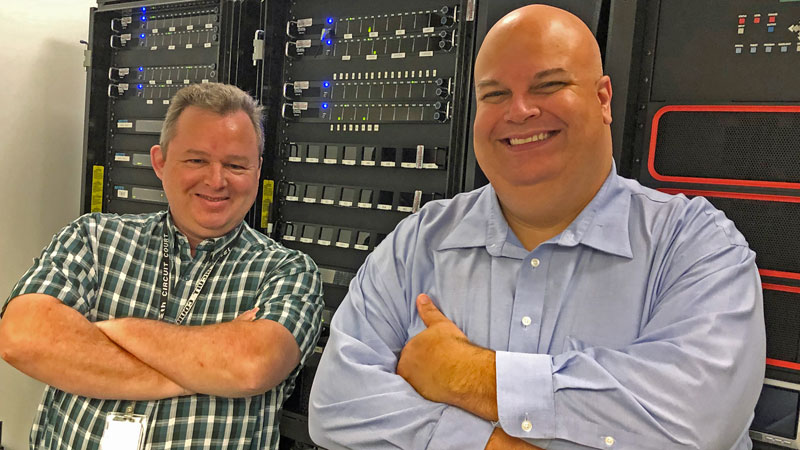 From Left: Joe Terhune and Patrick McHugh
From Left: Joe Terhune and Patrick McHugh
Senior System Administrator/Developer Joe Terhune's IT career started at Electronics Boutique, known for their Game Stop stores. Since then, he was the Technical Services Manager for Boar's Head, a web developer for the Manatee County Clerk, and found his way to the Twelfth Circuit starting as a web developer. Some of Joe’s career highlights and achievements at Boar’s Head include installing their first LAN and WAN, their first intranet and ERP system, and developed an application to secure all product recipes. At the Manatee County Clerk Joe developed the pilot site that ended the court record moratorium of 2003. Here at the Twelfth Judicial Circuit, he developed the eWarrants system used by other circuits, developed modern responsive jud12.flcourts.org site, and unlocked JACS licenses to extend its use for all circuits using the product. His areas of expertise include Full stack .Net developer, Full stack React developer, SQL Server DBA, and SharePoint Administration.
Kevin Billingsley, Senior Network Administrator, started in IT while working for the Clerk of Circuit Court, back when mini-mainframes and dumb terminals were the technology of choice. He later moved up the block to the Public Defender, where he was the sole support person, for staff in all three counties. After several years with the PD, he crossed the street to the Court Administrator. He has been with Court Admin since late 2000. Kevin often tells people, “I’ve worked in a one block radius for over thirty years and my car drives to the county garage with no user intervention.” Kevin enjoys technology and always looks forward to new challenges in the field. Kevin thanks all his “customers” for making the time with Court Administration so enjoyable.
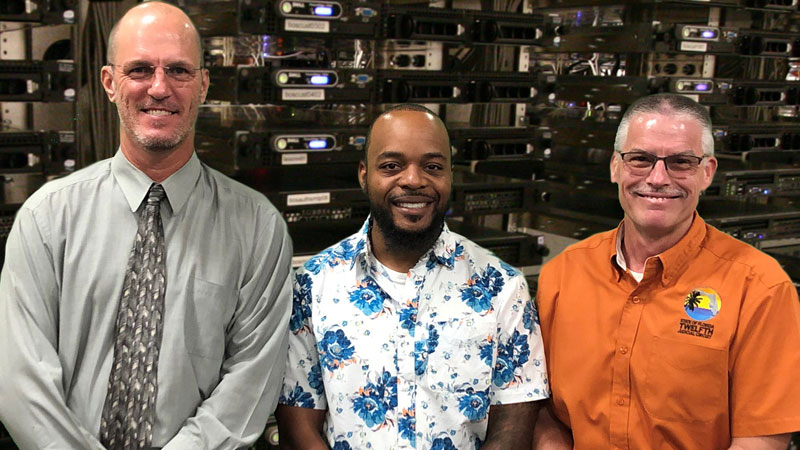 From Left: Michael Gostischa, Brian Warren and Kevin Billingsley
From Left: Michael Gostischa, Brian Warren and Kevin Billingsley
While going to school for pre-Pharmacy while working in a hospital, Michael Gostischa, Senior Network Administrator, decided he didn't want to count pills for the rest his life. There was an opening in the super-exciting field of data entry at the hospital. Strangely enough the hours were better, and the pay wasn't half bad. He went from being a data entry operator to a Systems Administration when their other administrator quit. Before he left, the former administrator took Michael under his wing for a few weeks and was available for calls after he departed. Michael became A+ certified and for part of the training he did a contract job with Tampa Airport setting up computers. They liked his work ethic and hired him on as a System Administrator after his contract ended. From there Michael came to the Twelfth Circuit. Michael completed Sarasota County Academy of Leadership Excellence (ALE), enjoys kayak fishing and Tampa Bay Lightning Hockey.
Brian G. Warren, IT Technician I, is a USF graduate with a bachelor’s degree in information technology. After graduating from college, Brian worked for Jacksonville Transportation Authority as a help desk technician then transitioned into Systems Administrator during a four-year tenure before moving to Sarasota. Once in Sarasota, Brian briefly worked for the school board as an IT technician then jumped onboard with the Twelfth Circuit in 2015. As a hobby Brian loves to bowl and is a hardcore gamer. His favorite teams are Philadelphia Eagles and Los Angeles Lakers. Fun Fact: Brian received a call to audition for Little Rascals movie. Brian’s motto: “Once a task has begun, never stop until it’s done, be the labor great or small, do it well or not at all!”
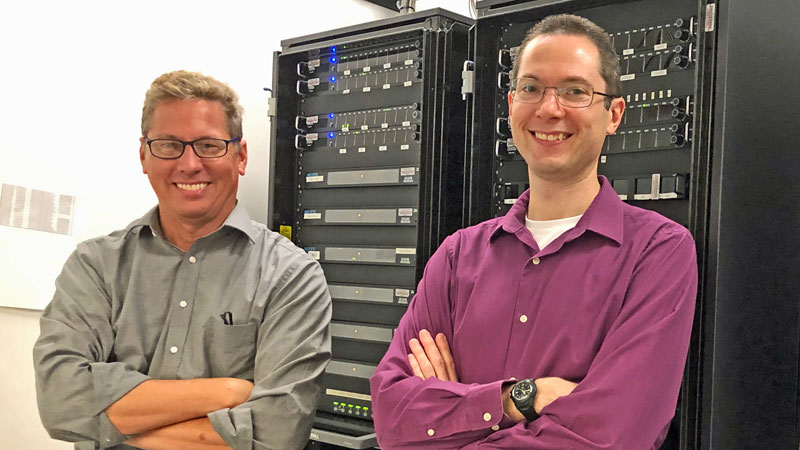 From Left: Jon Schunk & Christopher Schrieber
From Left: Jon Schunk & Christopher Schrieber
Christopher W. Schrieber, IT Technician I, holds CompTIA A+/Network+/Certified IT Operations Specialist certifications. He is a UCF graduate (Go Knights!) and previously worked for the Pinellas County Clerk’s Office and UNC - Chapel Hill. He has been with the Florida state court system for 13 years. Chris gained experience in technology out of sheer need while working for the Clerk’s Office in the 6th Circuit. The circuit’s IT staff consisted of one employee and Help Desk tickets took days to process, so he learned how to tear apart copiers, computers, and printers and get them back working again. Fun fact: One of his jobs after college was working at the DMV!
Jon Schunk, Senior Network Administrator, started as a geologist in working in Ohio, Indiana, and Kentucky but switched careers to IT for more opportunities and the indoor benefits of air conditioning. Jon worked in Sarasota at a call center doing IT work before joining for the Manatee Clerk’s office and subsequently joining the Twelfth Circuit.
Probate Coordinators
Jessica Carroll, the probate coordinator in Sarasota County, assists the circuit probate judge with reviewing submitted documents and proposed orders for compliance with regulations and helps to ensure that estates are administered in a timely manner. In this role, the probate coordinator works closely with the judge, judicial assistant and guardianship monitor to address any issues that may arise.
Much of Jessica’s file review involves formal estate administrations, summary administrations and petitions to determine homestead status of real property using the checklists that are available on the Twelfth Judicial Circuit’s website. Another important aspect of Jessica’s job is conducting the initial review of documents in advance of court hearings to verify that there are no deficiencies with the submitted paperwork. The position also involves interacting with attorneys and law firm staff to assist with procedural questions.
Elizabeth “Libby” Olson, the probate coordinator in Manatee County, works independently to assist the probate judge by providing case management and administrative support to the Probate and Guardianship division. Libby’s responsibilities include reviewing probate cases; researching Florida probate rules; drafting proposed orders; setting and attending hearings; and working closely with the probate judge, the judge’s assistant, and other court personnel. Daily tasks include communications with pro se litigants and attorneys to ensure compliance with Florida probate rules and statutes. Libby also reviews daily ex-parte files as received from the Clerk’s office, sending files to the judge for signature and/or further instructions.
“On one occasion, I called a petitioner regarding an estate where the wife had died, I asked to speak to him, and when he replied, ‘I am here, or what’s left of me,’ I really began to understand what people are going through. We are here to help and open to listen during these hard times and we will work hard to make this process as easy as possible,” said Libby.
“The reward that comes from being a probate coordinator is that we are making a huge impact on [a person] during one of the most stressful events in their life. We are helping them through a hard process – the loss of a loved one – which can be an emotional time,” said Libby.
Family Case Managers
Imagine guiding someone through a maze without telling them if they should go left or right, yet successfully getting them to the other end. That is the challenge of a family law case manager. The staff is not permitted to give legal advice to litigants who have chosen to represent themselves in legal matters. Most members of the public are surprised by how much that limits staff because the term “legal advice” includes telling the person which self-help packet to use, form to complete, agreement to make, order or motion to file.
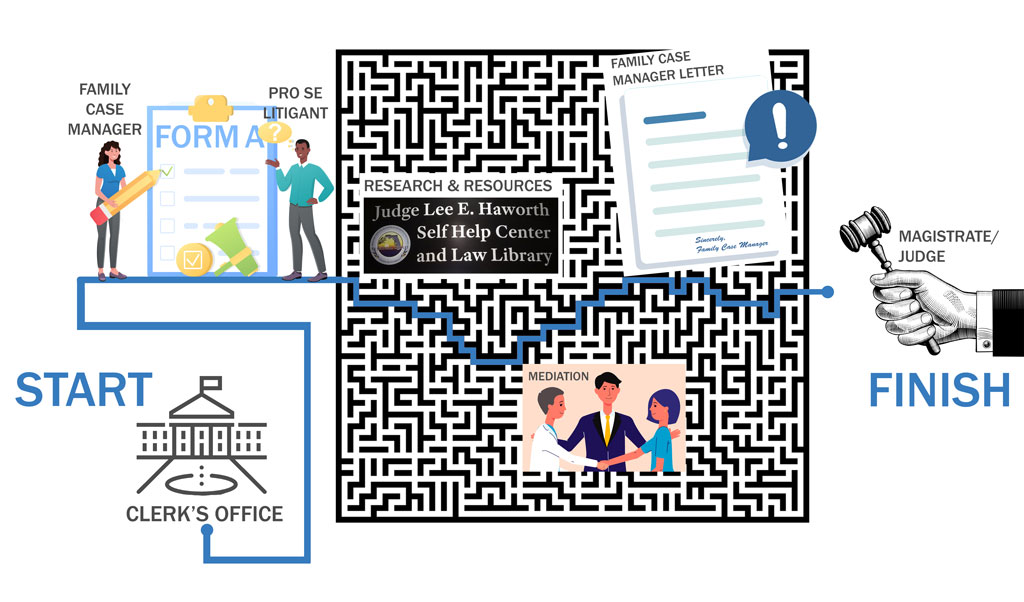
Family case managers handle two types of legal matters, family law cases and temporary restraining order hearings. Family law cases include dissolution of marriage (divorce), alimony, paternity, name changes, child support, and parenting plans (parental responsibility and time-sharing). The second type of legal matter is temporary restraining order hearings (TROs), where petitioners ask the Court for protection against violence. Family case managers in our smaller locations, south Sarasota County and DeSoto County, handle both matters.
CASE MANAGER ROLE: FAMILY LAW CASES
Family cases often involve extremely emotional parents, spouses, and children, complicated by issues of time sharing, child support, real-estate, personal property, and assets. The pro se client has decided to represent him/herself, often with little knowledge of the legal process, terms, or the law. It is not unusual for pro se litigants to seek legal help during a highly stressful and emotional time.
FORM A - HELP THROUGH THE LEGAL PROCESS
A pro se litigant does not have to navigate the family court labyrinth alone; if they need assistance our circuit has a system and staff in place to help. A case manager will walk with the pro se litigant through the legal maze which includes interacting with the clerk’s office, judicial assistants, judges, and magistrates. The case managers use their knowledge, skill, the self-help center, websites, lots of emails, and phone calls to help the individual appear before the court.
A litigant must complete a “Form A” and submit it each time they file a document with the Clerk of Court. The clerk’s office sends daily reports to family case managers who then review the filed documents for completeness. Case managers respond via email or written letters, and when time permits, a quick call. Case managers also prepare referrals for mediation.
The “Form A” is a one-page document that allows the pro se litigant to request a hearing, ask a question, or inform the case manager they have submitted additional information related to their case. An additional tool also used by case managers is the “Needs Letter” which informs the litigant of missing documents that need to be filed before a hearing can be requested.
Once the file is complete, the case manager requests a hearing. The case manager continues to assist by attending the hearings, answering questions, and preparing draft final orders.
RESOURCES TO NAVIGATE THE MAZE
There are numerous resources available to the pro se litigant. While the case managers cannot give legal advice, they often direct individuals to resources to help make informed decisions to handle their case as efficiently as possible. Over the years the circuit developed information packets to assist pro se litigants with some of the most frequently filed family cases, including name changes and four types of dissolution of marriage. The packets are available online, at the clerk’s offices, and at the Judge Lee E. Haworth Self Help Center and Law Library in the Judge Lynn N. Silvertooth Judicial Center in downtown Sarasota. The center provides opportunity to research the law, make copies, and access to computers. The Twelfth Circuit has several court-approved fill-in forms, tips on presenting and/or preparing for court and mediation services.
CASE MANAGER ROLE: TEMPORARY RETRAINING ORDER HEARINGS
The Court schedules a hearing in response to a Petition for Injunction for Protection for stalking, domestic, repeat, dating, or sexual violence. Once the hearing is set, a case manager assists both the judge and the parties with the hearing. Prior to the hearing the case manager verifies proof of service, researches related cases, checks for outstanding warrants, and determines if there is a need for an interpreter or Zoom arrangements due to a health issue or party incarceration. They also provide a summary of information to the judge in advance of the hearing.
FACILITATING HEARINGS
TRO hearing days are fast paced. The court addresses a sensitive topic with often emotional and frightened parties who have safety concerns for themselves or their minor children. On the day of hearing, the case manager takes on the role of facilitator, because parties of TRO hearings are not permitted to speak directly with each other. The waiting areas for petitioners (those requesting protection) and respondents (those accused of violent behavior) are physically separated or seated on opposite ends of the hall for safety. To facilitate the hearing, the case manager meets with each party separately, determines if tentative agreements are possible, makes sure parties understand their rights, the legal process, and what to expect in court and makes them aware of victim advocate services.
THE TRO CLOCK
Some hearings last only a few minutes, others are more complicated. Manatee County has the highest volume, often with 20 hearings scheduled in a single day. During the first six months of 2021 our circuit had just under 1,000 scheduled TRO hearings.
Florida law requires that a TRO hearing occur within 15 days of the petition, unless extended by court order. To meet this requirement, TRO hearings are held weekly.
MEET THE TEAM
I joined the circuit in March of this year. My professional experience includes over 20 years with social service agencies as a case manager, supervisor, grant manager and writer. I also hold a juris doctor. The most rewarding part of being a family court coordinator is providing support, encouragement, and tools to empower team members as they help people navigate the court system.
Family matters are often emotional and complicated, and bringing a family issue before the court is very stressful. I am proud to be part of a team that helps individuals and families complete the necessary steps to come before a judge or magistrate. Case managers possess the knowledge, compassion, flexibility, critical thinking, and organizational skills needed to assist the pro se court user. It is very satisfying work.
COVID Challenge: Talking with people about sensitive personal matters while following the Court's social-distancing requirement.
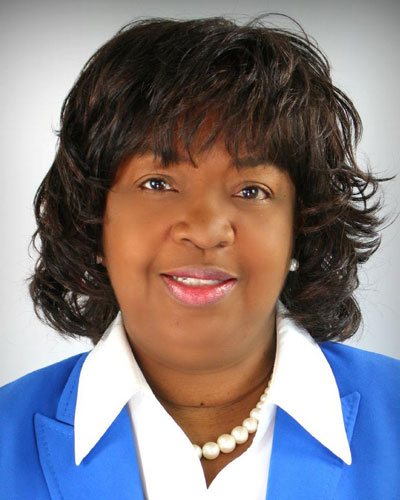
Eula T. BaconFamily Court Coordinator
I have worked at the Twelfth Judicial Circuit for 17 years, 13 years as a case manager. I believe we are a community, and it really does take a village. Regularly I have the pleasure of working alongside the supervisors at the Clerk of the Court’s office, the staff at the Self-Help Center, as well as our very dedicated judicial staff. We come together and work well collectively as a team to diligently serve this pro se community, as well as this circuit, effectively. I enjoy knowing that there are times I can be a kind and often joyful voice on the other end of the telephone, during someone’s hardship, just getting them through the next step.
COVID Challenge: COVID challenged me to think differently and respond proactively to the changing circumstances happening in our environment. The more resilient I can be, the more equipped I am to face these kinds of hardships, and the ripple effect it will have on the people around me.

Amber MockovciakFamily Case Manager, manages pro se cases in north Sarasota County
I have worked as a case manager for my entire 17 years with the Twelfth Judicial Circuit. The position as a family law case manager is challenging, fast-paced, sometimes chaotic, varied, but always rewarding. No two days are the same. The most rewarding days for me is when I can say, “I really made a difference in someone’s life today” that makes all the hard work worth it. DeSoto is a large land area but a small community, often people that I have helped many years before, still remember me. A great number of people have been told about our case management program by a friend or family member.
COVID Challenge: When COVID-19 arrived in the U.S., it meant finding creative ways to do my job and still ensuring that the public had access to the Court. Learning ZOOM was not my favorite thing, but the benefit of using the platform is priceless.
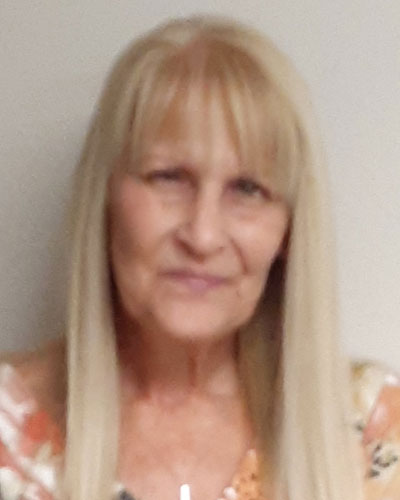
Kathy RuschFamily Case Manager, manages pro se cases and facilitates domestic violence cases in DeSoto County
I have been helping Pro Se litigants as a case manager for 11 of my 14 years with the Twelfth Judicial Circuit. The court process can be overwhelming. Often a party does not know if they have completed all the steps to have a hearing date set. As a case manager I use my knowledge of the family court system to walk them through the process. We can’t give legal advice, but we are permitted to give pro se litigants templates, check sheets and forms.
There is also a great deal of behind-the-scenes work that most don’t think about: such as case managing for the pro se litigants as well as the judges/magistrates; coordinating hearings with attorneys and judicial assistants; setting hearings and preparing the paperwork that goes along with it; preparing referrals to the magistrate and for mediation; notifying litigants of missing documents; and drafting orders for the judge/magistrate.
COVID Challenge: Amending hearing notices multiple times to allow for zoom hearings.

Melissa KiefferFamily Case Manager, manages pro se cases in Manatee County
I have been a case manager for three of my nine years with the Twelfth. The most rewarding part of my work is helping Pro Se litigants see their case to conclusion. Receiving a thank you from a person who had a legal issue, needed information and guidance to come before the judge or magistrate. There is also a feeling of satisfaction when I work face-to-face with petitioners and respondents involved in sexual assault, stalking, domestic, repeat, or dating violence as part of TRO hearings.
COVID Challenge: Zoom. Learning Zoom, managing hearings on Zoom, and helping those who are able to log on manage their virtual court appearances.
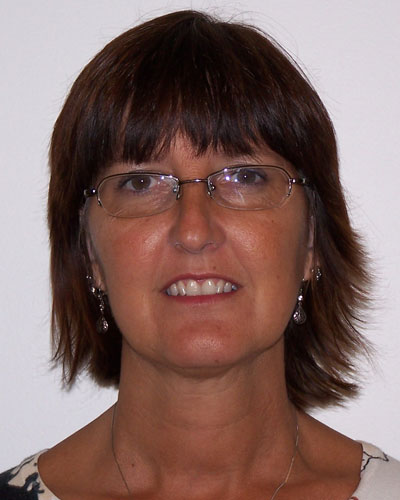
Lynn PekloFamily Case Manager, facilitates domestic violence and pro se cases in south Sarasota County (Venice, North Port, Osprey, and Englewood)
I am the newest case manager on the team, joining during the height of COVID. I have been with the court for about three years, with half of that time as the domestic violence facilitator for Sarasota and Manatee counties. The most rewarding part of this job is the opportunity to work with a fabulous team of judges, JAs and colleagues! This position involves coordinating with four Family law judges, judicial assistants, court clerks and deputies, interpreters, victim advocates, lawyers and the petitioners and respondents to ensure everything goes as smoothly as possible on the actual injunction court days in Manatee and Sarasota.
It requires a great deal of very detail-oriented work in advance of the actual court day including but certainly not limited to preparing reports and checklists, setting up jail hearings as needed, interpreters as needed, and reviewing various dockets daily to check on service to the parties, last-minute arrests, or other issues that could potentially arise. Every day is different, unique, and always busy!
COVID Challenge: Injunction hearings continued to be in-person for the most part during COVID. Keeping healthy while facilitating in person was a big challenge! Getting the vaccine was a big relief for me.
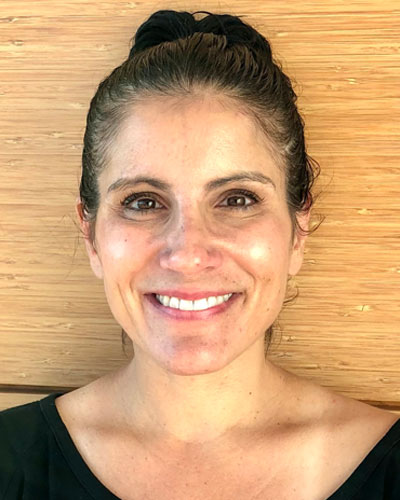
Rebecca PerraFamily Case Manager, facilitates domestic violence cases in north Sarasota County and Manatee County
[ LEARN MORE ]
Helping a pro se litigant through the legal process and providing them better access to the courts is the role of family case manager in both temporary restraining order hearings and family law matters. Read more about the Twelfth Judicial Circuit Family Self Help (Pro Se) Program and find links to family law forms and information, plus links to circuit-approved forms.